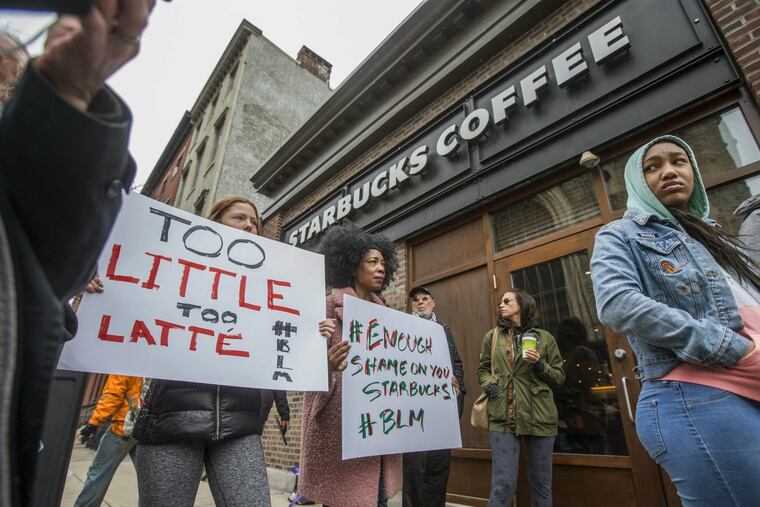Starbucks is planning racial bias training. Here's what a Penn professor says it should involve
Howard Stevenson teaches local schools and communities how - and how not - to address racially charged encounters and unconscious bias.

Starbucks will close all its U.S. stores the afternoon of May 29 to conduct training on racial bias, after the national outrage over the arrests of two black men at a Starbucks store in Center City.
Former U.S. Attorney General Eric Holder and officials from the NAACP and Anti-Defamation League are helping to develop the training curriculum. The company's effort to address discrimination has been lauded by some, but others have questioned whether one day of training will really fix racial bias.
As Starbucks plans the training, we turned to University of Pennsylvania professor Howard Stevenson to talk about what the session could and should involve. Stevenson teaches people in schools and communities across the region how to address racially charged encounters and unconscious bias. (He is not involved in the Starbucks training.)
Here is what he recommends:
It can’t just be done in one day
One day is a start, but the message only has lasting power if it's repeated again and again, Stevenson said. He and his staff go to the same school several times a year — or more — to see how teachers are handling bias and where they can improve.
"You want people to say: 'I'm struggling with this. How can I get better at it?' " Stevenson said.
It's important to talk about situations that staffers thought they handled well, too, he said.
Perform role-playing so people can see, not just talk about, how they’d act
Saying you'll follow a policy and won't be biased is one thing. Actually doing it is another.
Stevenson has teachers perform role-playing exercises to experience scenarios in which they might be biased. He then addresses what they did right and what they could have done differently.
Role-playing puts employees in a stressful situation in a way words and policies can't, Stevenson said. It can make employees recognize personal biases — especially those they overlooked or acted on unconsciously — and help them relate to the stress or anxiety the person who is discriminated against may be feeling, he said.
Stress that the mental toll of discrimination lasts far longer than one moment
Experiencing discrimination — from how people talk to you to how they look at you — can stay with someone for weeks, months, or longer. Stevenson said people might ask themselves: Did I handle it right? What could I have done differently? What would I say if I saw that person again?
>> Read more: The 'psychological torment' behind the slurs and symbols you pass every day
The feelings of anger and self-doubt — wishing you were a different skin color, religion, or other identifying feature, for example — can also affect a person's relationships with family, friends, and coworkers, or cause that person to act differently to avoid stereotypes, Stevenson said.
Aja Clark, a volunteer coordinator at an education nonprofit, highlighted this concern to staff writer Cassie Owens in a story this week about how black people are treated in coffee shops:
"You do a lot to avoid looking like the stereotype," Stevenson said.
Talk about how discrimination takes a physical toll on the body
When people face discrimination, Stevenson asks them to rate how intensely they feel on a scale of 1 to 10. He wants to know: Where in their body do they feel those emotions?
It could be the feeling of butterflies in the stomach, a kick to the gut, or being choked up to the point they can't say something in response, Stevenson said.
>> Read more: Philly police commissioner issues public apology to 2 men arrested at Starbucks
The more people become aware of those feelings — and how to address them — the more they can protect their physical health, he said.
Allow people to open up about their own experiences of discrimination
Discrimination can take a damaging mental toll, but people sometimes try to minimize it to prevent themselves from being overwhelmed, Stevenson said. It may help in the short term but can lead to feelings of isolation in the long run, he explained.
Having people share their stories — and realizing someone else has experienced similar forms of discrimination — can be cathartic, Stevenson said.
"It gets emotional sometimes. Some people will remember stories that they had forgotten," he said. Talking about those experiences "makes them feel like the climate isn't so isolated."
>> Read more: Philadelphia Starbucks arrests: What we've learned a week later